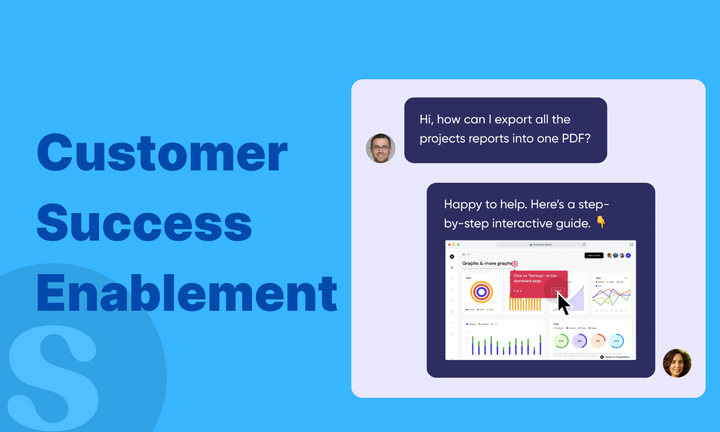Customer Success Managers (CSMs) are the linchpins of a successful customer experience (CX) strategy, particularly in the burgeoning field of software-as-a-service (SaaS). Their role is critical in any business committed to prioritizing customer satisfaction, retention, and growth.
However, hiring the ideal CSM can be a daunting task, especially given the novelty of the field. This article will guide you through the hiring process, helping you identify and onboard the perfect CSM.
Defining the Role
Before commencing the hiring process, it's crucial to understand and define the role of the CSM in your organization. A CSM's role can vary significantly depending on the organization's structure and business model. They can act as a bridge between the customer and the support team, handle account management functions, or even serve as auxiliary salespeople.
Understand your expectations from the CSM role and clearly define the job description. This will help you identify the right skills, experience, and qualifications in potential candidates.
Job Posting
The platform where you post your job ad can significantly influence the type of applications you receive. For instance, LinkedIn has become a popular recruitment platform for remote job postings, while websites like Angellist and Startup Jobs appeal to candidates interested in working for startups.
Choose the platform that aligns with the type of candidate you wish to attract. If you're targeting applicants with specific industry interests, consider niche job boards that cater to those industries.
Assessing Experience
CSM is a relatively new field, and few applicants may have direct experience in this role. However, don't let this deter you. Successful employees from related fields such as account management, customer support, sales, marketing, or project management can make excellent CSMs.
Look for candidates with consulting experience, particularly for senior CSM roles. This will enable them to work effectively with clients, identify their needs, and solve their problems.
Evaluating Communication Skills
Since CSMs spend a substantial part of their time communicating with customers, their writing skills are paramount. Assess potential CSMs' writing skills by requesting samples of their work. An applicant with poor writing skills can reflect negatively on your company, which is undesirable for a CSM.
Involving Multiple Teams in the Interview
A CSM interacts with various teams within your organization, including account managers, salespeople, support agents, marketers, and developers. Involving members from these teams in the interview process can provide diverse perspectives and help assess the candidate's fit within the organization.
Testing Problem-Solving Skills
Putting applicants on the spot with tough interview questions can provide insight into their problem-solving skills and poise under pressure. Asking about their experience dealing with specific challenges or objections can help you assess their ability to think quickly—a crucial trait for providing excellent customer experience.
Identifying Potential
Since customer success is a new field, applicants may lack direct experience in the role. Therefore, assessing the potential of the applicants is crucial. Look for traits such as energy, mental fortitude, relational intelligence, organizational skills, team orientation, confidence, proactivity, domain expertise, and the ability to become a trusted advisor.
Building a Strong Team
Hiring for a Customer Success Manager role can be challenging but rewarding. By focusing on the right attitude and talent, you can build a strong team that enhances your customer experience and drives your business forward.
Qualities of an Ideal CSM
An ideal CSM is a generalist capable of performing a multitude of tasks as required. They should exhibit strong emotional intelligence, which is crucial for managing customer emotions and defusing tense situations. They should also be lifelong learners who are coachable and can grow with your company.
Product and Market Understanding
Understanding your product and market is crucial for a CSM. They should be able to comprehend your product's complexity and the specific language used by your customers. If your product requires specialized knowledge or caters to a niche market, consider candidates with relevant industry experience.
Sales and Pricing Model Consideration
The sales and pricing model of your product can influence the type of CSM you need. For example, high-priced products with a high-touch sales model may require a high-touch CSM. On the other hand, 'freemium' products with a low-touch sales model may require a CSM who can operationalize and scale customer success quickly.
Implementation and Expansion Strategy
The complexity of your product's implementation and the speed at which customers derive value can affect the type of CSM you need. If your product's implementation varies based on customers' specific needs, you'll need a CSM capable of crafting customized onboarding plans.
Also, consider your expansion strategy. Different expansion strategies require different skill sets. Therefore, ensure that your CSM is capable of identifying and pursuing potential expansion opportunities.
In conclusion, hiring a CSM is a critical step in building a customer-centric organization. By understanding the role, assessing the candidate's experience, testing their problem-solving skills, and considering your product, market, and sales model, you can hire a CSM who not only fits into your organization but also drives it towards success. Remember, customer success is not just a role—it's an investment in your company's future.








